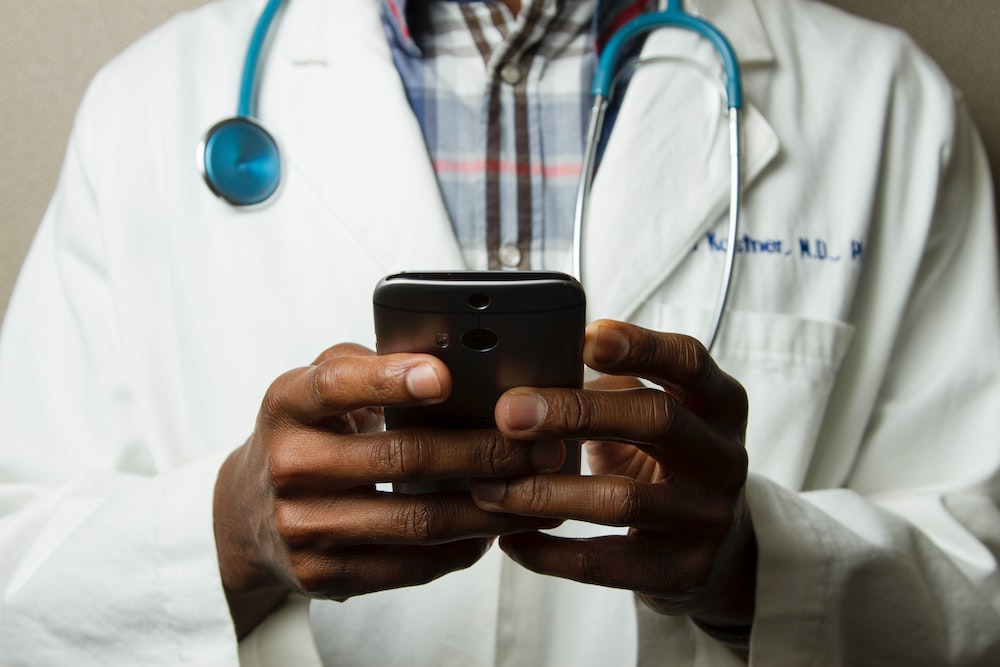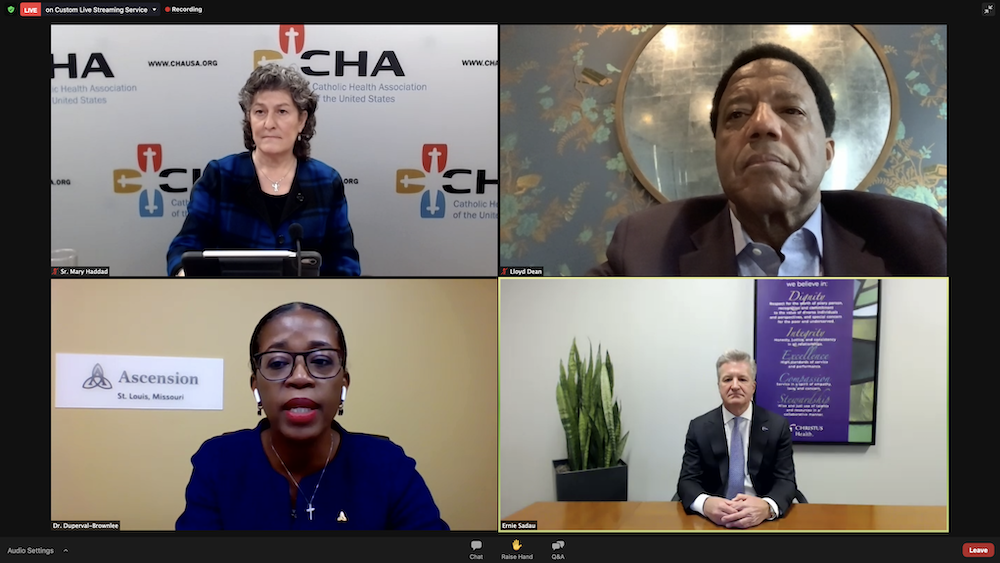
"Starting with our own caregivers and communities, we will seek out and address the structural disparities further exposed by the pandemic that impact those most in need," said Liz Dunne, president and CEO of PeaceHealth. (Unsplash/National Cancer Institute)
The Catholic Health Association (CHA), whose members treat one in every seven patients in the United States, is pledging to achieve health equity to help fight racism.
The initiative, announced Feb. 4, was spurred by the association's members after the differences in health outcomes were laid bare by the COVID-19 pandemic and the police killings of George Floyd and others became mainstream news. Twenty-three of the nation's largest Catholic health care systems have already committed to the effort, which will focus on COVID-19 equity, change across their own health systems, advocating for improved health outcomes for minorities, and strengthening trust with minorities.
"All of us who work in Catholic healthcare believe racism is an affront to Catholic social teaching," said Mercy Sr. Mary Haddad, CHA president and CEO. "COVID-19's greater impact on communities of color and the police killings of George Floyd and others demonstrate the urgent need to address the devastating impact racism has on the health and well-being of individuals and communities."

Pictured clockwise, from top left, Mercy Sr. Mary Haddad, president and CEO of the Catholic Health Association; Lloyd H. Dean, president and CEO of CommonSpirit Health; Ernie Sadau, president and CEO of CHRISTUS Health; and Dr. Tamarah Duperval-Brownlee, Ascension senior vice president and chief community impact officer announce Feb. 4 Catholic Health Association's new effort to combat racism by ending health care inequities. (GSR screenshot)
The pandemic has disproportionately affected communities of color: Indigenous, Black and Hispanic Americans are about 1.5 times more likely to be infected with the coronavirus, up to 4 times more likely to be hospitalized, and nearly 3 times more likely to die from it, according to the Centers for Disease Control and Prevention.
"This past year has clearly revealed that more must be done to confront racism in the communities we serve and in our own organizations," Haddad said in an online press event accompanied by hospital executives. "Our hope is that by coming together with a shared vision and purpose, we can do our part. We'll use health equity as the prism through which we look at all our work."
Collectively, the health systems that have already signed the pledge employ nearly 500,000 people and care for almost 4 million patients a year.
The effort, which can be seen in detail at WeAreCalled.org, focuses on four areas:
- COVID-19 equity: Members commit to ensuring testing, new treatments and vaccinations are available and accessible in communities of color and that those at higher risk get higher priority.
- Change across health systems: Members commit to examining how they recruit, hire, promote and retain employees and to working for visible diversity and inclusivity at decision, leadership and governance levels.
- Advocating for improved outcomes: Members commit to taking public stands for health equity and on issues that perpetuate social inequities such as a lack of education and housing. CHA commits to using the powerful, collective voice of its members to advocate for change.
- Strengthen trust with minority communities: Members will continue to foster and strengthen relationships to better understand the needs of their communities.
"We believe everyone has a right to be healthy, and racism has an impact on that," said Lloyd H. Dean, president and CEO of CommonSpirit Health. "The pandemic has magnified health injustices that have existed for many years. … Shame on us if we do not seize this moment as a nation and as a society to make measurable and demonstrable changes."
Advertisement
CommonSpirit Health has begun a 10-year, $100 million partnership with the Morehouse School of Medicine in Atlanta to develop and train more culturally competent providers, which will expand opportunities for Black and other underrepresented physicians and will help improve COVID-19 testing, care delivery and vaccine allocation for the most vulnerable populations.
Ernie Sadau, president and CEO of CHRISTUS Health, said Catholic health organizations are called to lead by example.
"Because of our sponsoring congregations, who were working for health equity long before it was even legal to do so, we have a responsibility to follow their example," Sadau said. "How we hire, how we support and how we train our associates is critical to our success."
Dr. Tamarah Duperval-Brownlee, Ascension senior vice president and chief community impact officer, said systemic change will not take place overnight.
"The arc of community engagement is a long one," she said. "Efforts have been made, but there is still work to do. … If we care at all, we need to challenge ourselves. Building trust with communities takes time, but trust is also earned in times like these."
Liz Dunne, president and CEO of PeaceHealth, said so many issues are intertwined it does not make sense to focus on only one.
"Starting with our own caregivers and communities, we will seek out and address the structural disparities further exposed by the pandemic that impact those most in need," Dunne said in a written statement accompanying the announcement. "Our charge is to enact sustainable change, through which access to equitable, affordable whole person care — physical, mental, social and spiritual — is available to everyone."





